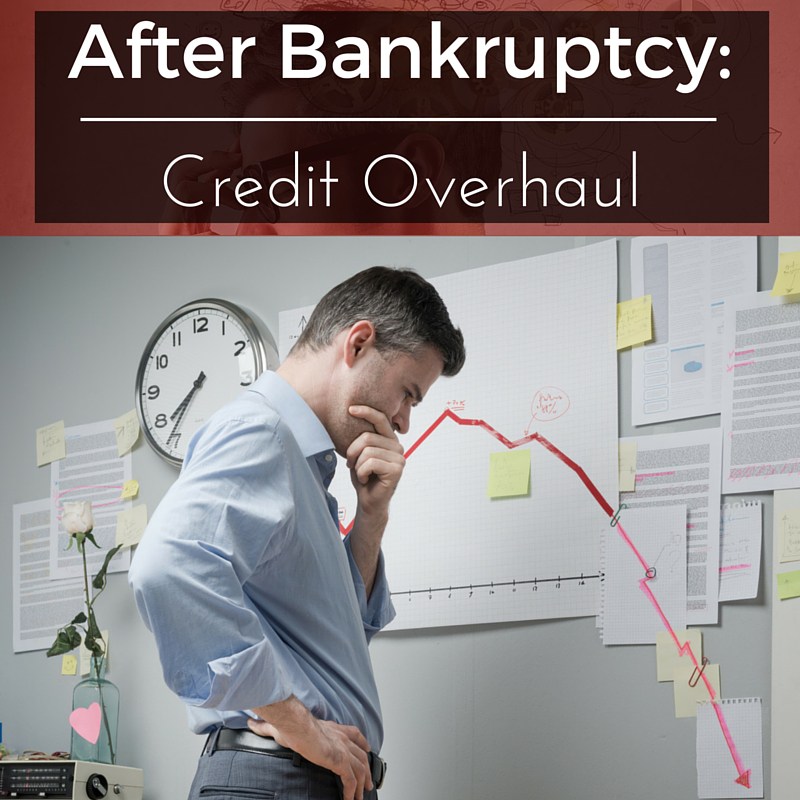After Bankruptcy: Credit Overhaul

Too often, people avoid filing bankruptcy as they believe their credit will be ruined forever. They continue to deal with harassing creditor phone calls and past due notices in the belief that struggling to pay their bills is helping their credit. The fact is that filing for bankruptcy actually damages your score less than keeping old, unpaid debt on your credit report. Filing for bankruptcy gives you a fresh financial start and there are steps you can take to begin raising it again, much more quickly than if you kept those old unpaid debts on your file.
Bankruptcy and Your Credit Score
The purpose of a credit score is to show lenders how much of a risk you are when it comes to borrowing money. When you pay your debts on time and regularly, your credit score is high. A lower score often means that debts were not paid on time, although there could be other factors that lower a score. Because bankruptcy shows that you were unable to pay your debts, your score will lower temporarily immediately after you file, but there are things you can do to improve the score fairly quickly.
Obtain a Copy of Your Credit Report
The first step is to obtain a copy of your credit report from each of the three reporting agencies – Experian, Equifax and TransUnion. Federal law allows you to obtain one free report each year from each of the agencies, although the free report will not include your credit score. Review your report and search for any errors, such as debt that was discharged in your bankruptcy that still shows as past due. You can work with the credit bureaus to have any incorrect information corrected by providing documentation, such as copies of your bankruptcy filing.
Pay Bills On Time
The next step is a bit more difficult as your first instinct will be to avoid debt altogether after bankruptcy. In order to rebuild your credit, you will have to use debt. The best way to start rebuilding credit is to take advantage of a secured credit card that reports to credit bureaus. Your bank may offer a secured credit card where you place a deposit in an account and the credit limit of the card is equal to the amount on deposit. Use the card and pay the balance off each month. After you have done this for several months to a year, contact the bank about obtaining non-secured card. In most cases, your good credit history with them will allow them to see you are being responsible about your debts. Another option is applying for a gas card which often have less stringent credit requirements and pay the balance each month.
Automatic Bill Pay
Another way to be sure that your bills are paid on time is to sign up for automatic bill pay through your checking or savings account. Set the payments up so they go out a week before the due date to be sure they are applied properly. Just make sure that you keep enough money in your account to cover those payments prior to the date they will be withdrawn to avoid overdraft charges.
Bankruptcy is not a credit death sentence as many people believe that it is. Instead, it allows you to make a fresh financial start after you have found yourself in financial difficulty. There are many reasons why you may be behind in your payments, including job loss, unexpected medical bills or other circumstances beyond your control. Contact Georgette Miller and Associates today to learn if bankruptcy is right for you. You can contact us by phone or visit us online to set up your initial consultation.



